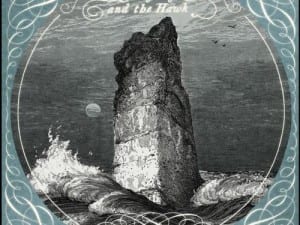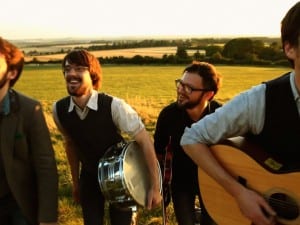Opera, and indeed classical music generally, is healthy and thriving, with large audiences. However, there is still a need to attract the attention of the younger generation.
Let’s get one thing clear from the very start. Classical music, including opera, is not in trouble. It is not dead, dying or even mildly ill. Andy Doe, a former head of classical music at iTunes and a brilliantly acerbic writer, highlighted some pretty convincing facts in a recent blog post. Here are a few: isolated but still powerful. The single largest commercial station in the UK is Classic FM. New York’s Metropolitan Opera clocked $93 million in ticket sales in 2013 – more than many American football teams. Classical music sales in the USA had 2.4% of the market share in 2005 and 2012 – in 2013 it was 2.8%. In the UK, Doe says, the percentage of adults attending concerts of classical music has increased in the last ten years – this is backed up by Arts Council findings. This is not a style of music that is on life support.
This begs the question – why does classical music, and opera in particular, still have an image problem? Why are they often seen as the preserve of the well-off, and why are they still viewed as having barriers to entry that aren’t worth climbing over? Why is classical music deemed “old-fashioned”?
It is true that classical music, and opera, is still primarily associated with an older audience. This is despite the fact that many of the musicians who are experimenting with the genre are relatively young: for example, Peter Gregson. The cellist has just turned 27, and he has been doing some amazing things. His project The Listening Machine combined social networking and music to create a single piece, and in Spheres & Splinters, he worked with the Massachusetts Institute of Technology’s storied Media Lab. He takes the concept of classical music being stuffy and kicks it out of an open window.
Gregson is a joy to speak with, and when it comes to music his mind is as sharp as a razor, particularly on the question of whether his genre actually needs to pursue a young audience. “I’ve never sat down and thought, ‘How do I get a younger audience?’” he says. “While audiences for opera and classical music may appear to be getting older, we must remember that they are loyal. We have to be aware of the ebb and flow of age, or we’re not doing it right. We’re creating something that’s a flash in the pan. I’m not worried about anecdotal evidence of audiences getting older, because my personal experience is that the age-span is decidedly healthy.”
It’s interesting to note that classical music, and indeed opera, didn’t always have an image problem. Great composers of the past such as Bach, Handel or Beethoven were challenging for their contemporary listeners. Contemporary music, of all sorts, has often been and continues to be daring. Gregson puts it like this: “We try to draw comparisons between brand new work and the finest examples of its type. Very few people will say new authors aren’t as good as Dickens. It’s not really the done thing. And of course there are lots of good books being written, and we don’t need to just focus on Chaucer or Shakespeare. We’re in a very odd world: contemporary musicians have to, day by day, compete with the musical masters of the past.”
What this does, he says, is alienate musicians who want to introduce new sounds or instruments. Stick a dubstep beat over a violin, and there’s no way you’ll be considered serious – it’s simply not classical music – as Lindsey Stirling, a young, classically-trained violinist found out. “If you think about film scoring,” says Gregson, “it doesn’t put music in a silo. It just has to work.”
However, at least classical music is relatively agile; you can hold an amazing concert with very few musicians in almost any venue with half-decent acoustics. But opera? It has a reputation for being expensive to see and to stage, and is perceived to be inaccessible and impenetrable.
“It’s a genre that suffers from certain misperceptions: that it’s long, in a different language, with a complex story,” says George Bruell. He’s Head of Media Development for Glyndebourne, the English festival of opera that is arguably the leading event of the season. The festival takes place at the country house of the same name, near Lewes in Sussex.
“[Opera’s] roots were that it was intended for everybody,” Bruell says. “It was for the man and woman on the street, and then something happened, and I’m not sure what it was, that made it a little more elite than it was ever intended to be. However, it’s the responsibility for the consumer to try it, and the responsibility of the opera house to make it available. As long as the heart of the experience is relevant to today’s world, people will want to come back to it.” Elite is right. Glyndebourne is a fascinating example of the kind of image opera projects. Watch its introductory video sometime: everything seems genteel, middle-class. However, the performances are brilliant – and it is hard not to be astounded by the technical brilliance of the productions.
The data on audience age is telling and may show that audience demographics are gradually changing. According to the results of an independent survey in 2011, New York’s Metropolitan Opera House had an average audience age of 60.4 in 2005 compared to 57.7 in 2011. And the Royal Opera House, Covent Garden, estimates that 40% of their 2012 audience was under 45. This is excellent news. Maybe the impression held by many of of Glyndebourne, and of opera, isn’t fair then. Bruell says that there have been lots of plans to bring younger audiences in.
They have an under-30s scheme, where they set aside the best seats in the house for £30. They’ve been touring, working in schools and undergoing a programme which Bruell calls “education work with younger communities”, and filming and distributing operas to arthouse cinemas. They upload clips to social media, showing what goes on behind the scenes. This is not a festival that is being idle about the question of engaging new audiences.
The problem is that the costs of putting on opera are high and it is frequently performed in large-scale and ofen grand venues with a good-sized company. “It’s not just the 60 or 70 people on stage,” Bruell explains. “You might have the same number in the orchestra pit, and also backstage. It’s an enormous undertaking, aside from the practical considerations.”
As a result of that cost, because of the strictures put in place by some of the great operatic composers, some opera isn’t performed in places where it might pull in new audiences. In addition, ticket prices can be seen to be high – £250 will get you the most expensive and the best seat at Glyndebourne. However, this opera house, with its effort to entice young audiences, has set its cheapest seated ticket at £40 and standing tickets at a mere £10.
Any opera is a risk for the organisation that stages it, Bruell says: “Risk-taking for opera is at its very heart. As soon as it becomes a safe art form, we’re probably not doing it right … When you’re independently funded, every time you make a choice, and we choose our operas five years in advance, you’re spending money before you’ve got assurance you can pay for it. It’s a financial risk, and there’s an artistic risk.” Then again, Bruell says that the independently funded festival successfully sells 95% of its ticket capacity every year. Once again, this is clearly not a genre in trouble.
However, that doesn’t mean opera and classical music generally don’t need to continue to push themselves forwards. It’s essential that new audiences are introudced all the time. “The problem we have is that we have to be big enough,” Gregson says. “Classical music is relevant today because it’s evolving. Bach, Beethoven and Brahms are still popular because we have creative bands. “I don’t for a second believe that these three greats from history would still be successful for a second if they were the final word in music. The whole idea of it stopping one day is terrible.” He continues: “I don’t think Jay-Z lies in bed at night thinking, ‘I wish more people liked rap.’”
Glyndebourne runs from 17 May until 24 August. For more tickets and further information, visit www.glyndebourne.com and to find out more about cellist Peter Gregson’s work, head to www.petergregson.com.
Rob Boffard





